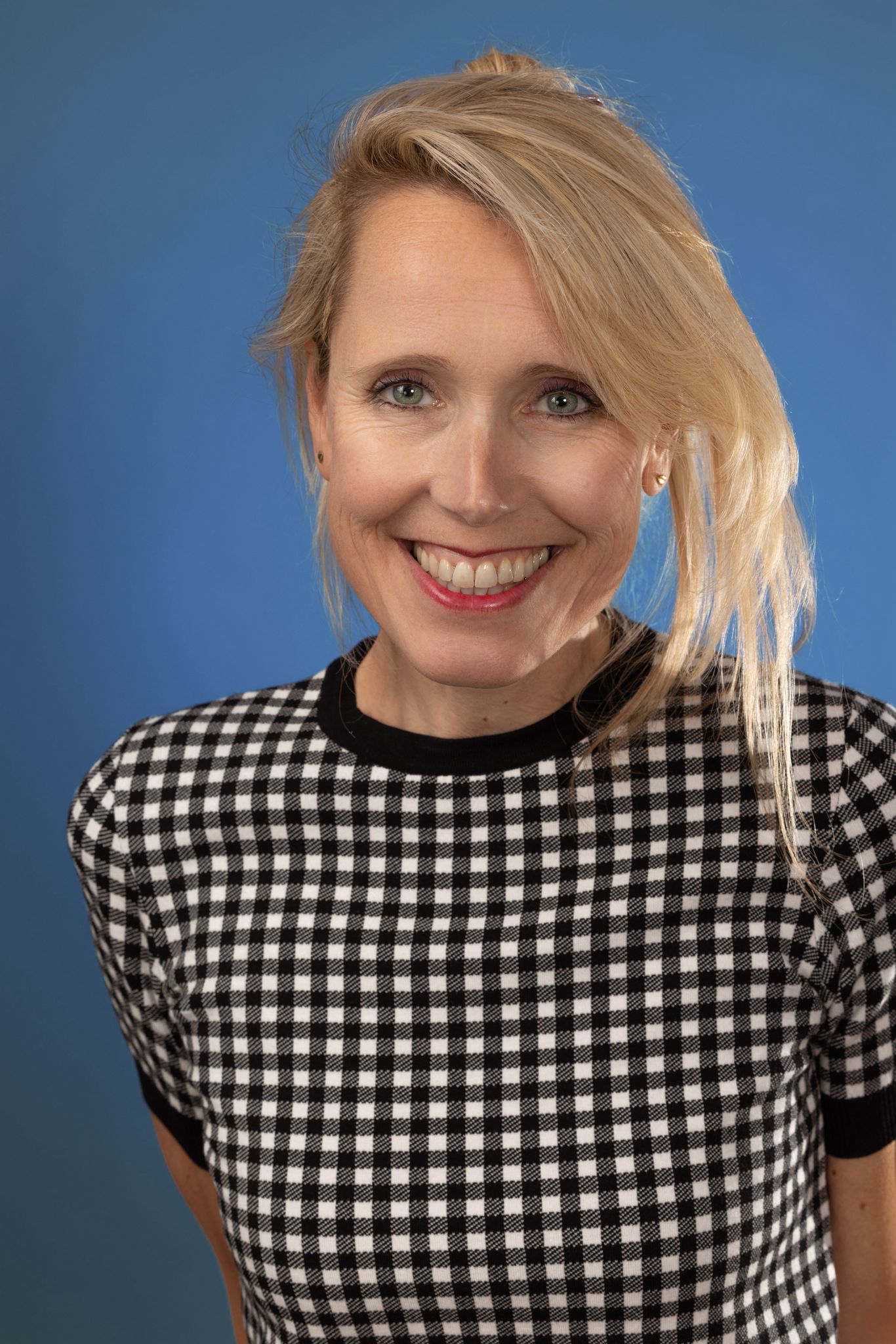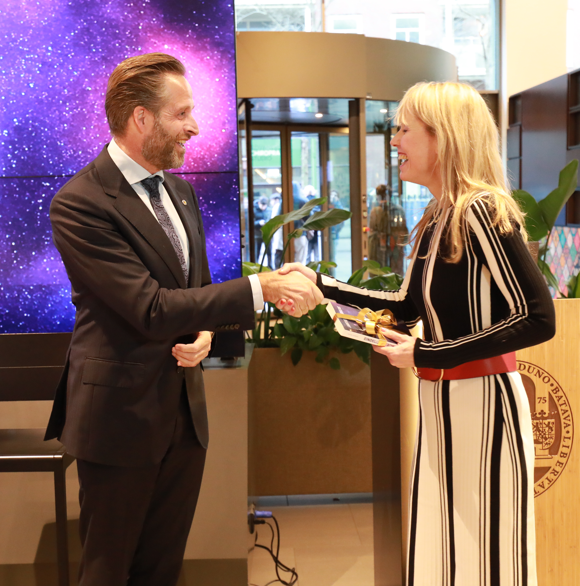
What if life turns out completely differently than expected?
Jantien Hadders (50), head of Education and Research Policy at FGGA, lost the love of her life and, to her great sadness, did not become a mother. It was precisely by being able to share her loss in the workplace that she slowly regained trust in herself.
Warning: this article contains passages about suicide.
You’ve written a book, what can you tell us about it?
‘It’s a very personal book. There were certain themes I had wanted to write about for a long time. But then my husband died by suicide in 2021. We had really wanted to become parents, and that didn’t happen, so the question of whether or not you become a mother was also part of it. In the last year of our IVF treatment I thought: should I write a book and end it with whether I did or didn’t become a mother? But when my husband died, I first had to write my way through that loss. I then brought all the texts together - including those on Greek mythology and Eastern philosophy - into a new structure. I mainly write from my own experiences, but always while reflecting on the question: how do you find your own path, and how do you stay true to yourself when so much is happening in your life?’

Book presentation at work on a personal subject
‘It may seem a little unusual, but I find it very meaningful. What I’ve experienced is how valuable it is when your personal experiences are allowed to exist in the workplace. You don’t have to talk about private matters all day, of course, but it can already make a big difference when colleagues simply know what’s going on. In the years when things weren’t going well with my husband, colleagues would ask how things were, and I’d say: it’s a bit of a difficult day. That can be enough - and it can mean so much. It can feel very lonely to go through something like that.’
Could you ever have imagined that things would turn out this way?
‘My husband had been unstable for a long time, but that also made him very lovable. He was a whirlwind, and life with him was never boring. We had a pact: I would be your anchor, and together we would get through it. And then at some point you find yourself standing there empty-handed. So where does that leave you? My life looks very different from what I imagined. Am I no longer myself - or have I actually grown because of these experiences? That is the process I started to explore in my book.’
Where does the title of your book Eindelijk Verdwaald come from?
‘For a long time I thought that, in my relationship with my husband, I always had to be the one who knew what to do. I had this constant impulse to take good care of myself, a kind of discipline: if I eat healthily, work hard, do everything right, then I can hold things together. Only now do I realise that life becomes gentler when you let go a little. Things can be looser, and it’s perfectly fine not to know sometimes. It’s also okay to get lost now and then — to think: where on earth am I now? That can actually feel liberating. And out of that freedom, room opens up again for new experiences. That’s also how I was able to be open to a new love in my life.’
Does surrender sometimes offer more support than discipline?
‘Yes, that’s exactly what I mean - that’s what it feels like. What do you actually have under control if you eat healthily and do everything right? In truth, not much. I still find it difficult every day, to be honest; ideally, I’d go to yoga every single day. But it feels good when a day can simply be a day, even if that means having a little less control. I’m trying to let go of my guilt these days and forgive myself: I’m only human, just like everyone else.’
When did this insight come to you?
‘Only this past winter. In theory you understand these things, of course, but actually feeling it — that’s only happened recently. I spent so much time focusing on what the people around me needed: my husband, my work… as long as others were satisfied, then everything was fine. With some help, I’ve begun to stand more in my own position. Is it also good for me?
I’ve also been reflecting on life with my husband. I understood that he did everything he could to get better and that he simply couldn’t do otherwise. I did feel acceptance and understanding for his choice, and for his instability; I could see he didn’t do any of it on purpose. But I forgot to recognise that, for me, it was all actually very intense.’
It’s impressive that you’re still able to feel that sense of acceptance.
‘It doesn’t feel like an effort to do that. What felt like a greater effort was allowing myself to be angry. That’s what eventually brought the sense of surrender - realising that it wasn’t all okay, and that it hadn’t always been good for me.’
How does this show itself?
‘I had never really been angry — I didn’t allow myself to be. Breathwork ultimately helped me. After that, I also became much more decisive at work. I think I associated anger with something negative, something that shouldn’t be there. But it’s actually quite liberating; I became more direct at work. I stated things more clearly, that’s what people told me.’
You worked for many years at the Ministry of Education, Culture and Science, and in June you moved to Leiden University. What was the period after your husband’s death like for you?
‘It was 2021 and I was the coordinator of the COVID crisis team. They divided my role among several people. Six weeks later I returned to work, but the ground had fallen away beneath me. I would have understood if they had given me different tasks, but instead they gave me the space to return to my position and pick up my files again one by one. I was able to do that at my own pace, and I felt that this meant I was being taken seriously as a professional. I thought: I can still do this, and this part of my life continues — a part of me is still here.
That was truly invaluable in helping me regain confidence in myself. It doesn’t diminish what you’re capable of.’

Open dialogue
The book presentation on 26 November marked the starting point for an open dialogue on personal space, vulnerability and collaboration in professional settings. Speakers from various sectors engaged in conversation about the themes explored in the book.
Politician Hugo de Jonge received the first copy.
Do you need help yourself?
Are you thinking about suicide, or are you worried about someone else? Talking about suicide helps, and you can do so anonymously via the chat at www.113.nl or by calling 0800-0113. All conversations with 113 are anonymous and confidential.
